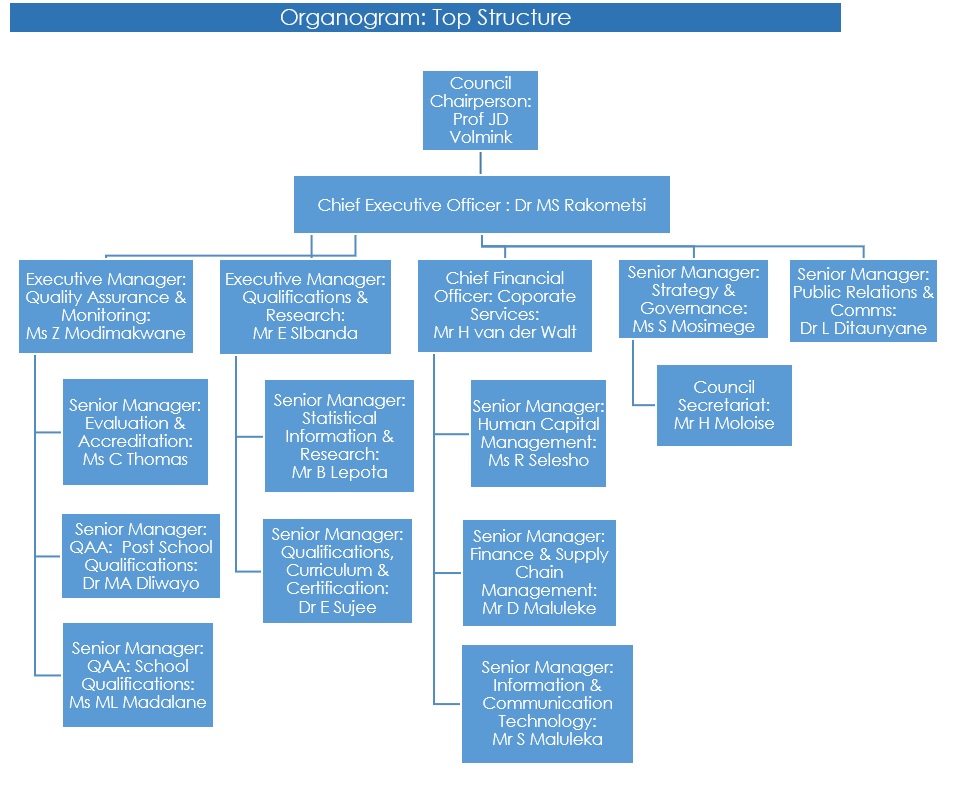Umalusi’s role in education and training in South Africa
Umalusi Council sets and monitors standards for general and further education and training in South Africa in accordance with the National Qualifications Framework Act No 67 of 2008 [as amended] and the General and Further Education and Training Quality Assurance Act No 58 of 2001 [as amended].
The Council is tasked with the development and management of a sub-framework of qualifications for general and further education and training and for the attendant quality assurance.
Umalusi is currently responsible for the certification of the following qualifications:
Schools:
- Senior Certificate amended (SCa) – continues as a revised qualification for adults
- National Senior Certificate (NSC)
TVET Colleges:
- National Technical Certificate (N3)
- National Certificate Vocational (NCV)
Adult Learning Centres:
- General Education and Training Certificate: Adults (GETC)
In order to issue learners with certificates that are credible, Umalusi:
- Develops and evaluates qualifications and curricula to ensure that they are of the expected standard;
- Moderates assessment to ensure that it is fair, valid and reliable;
- Accredits providers of education and training, and assessment;
- Conducts research to ensure educational quality;
- Verifies the authenticity of certificates.
Our name
Umalusi is derived from Nguni and it means “shepherd or herder.” Umalusi takes care of one of the nation`s most treasured assets – the standards of general and further education and training, hence its name. In Nguni culture ‘Umalusi’ also means the guardian of the family`s wealth.
Governance
Umalusi is governed and guided by the National Qualifications Act No 67 of 2008 [as amended] and its founding Act the General and Further Education and Training Quality Assurance Act No 58 of 2001 [amended in 2008]. Umalusi Council is appointed by the Minister of Basic Education to give effect to its mandate as expressed in these Acts. Umalusi also answers to the Minister of Higher Education and Training in respect of the certification of qualifications offered in TVET colleges and adult learning centres. Umalusi works in line with a five-year strategic plan agreed with the Ministers of Education. The strategic plan sets out Umalusi`s strategic priorities and performance measures. The strategic plan provides a framework for the annual business plan, which informs the Council`s day-to-day work and provides a basis for assessing performance.
Organisational structure
The Chief Executive Officer appointed by Umalusi Council oversees and provides strategic direction to the work of the organisation.
Umalusi’s work is conducted through operational units that are overseen by three Executive Managers:
Executive Manager: Qualifications and Research
Provides strategic direction to the work of the following units:
Executive Manager: Quality Assurance and Monitoring
Provides strategic direction to the work of the following units:
- Evaluation and Accreditation (E&A)
- Quality Assurance of Assessment (QAA) – School Qualifications (QAA-SQ)
- Quality Assurance of Assessment – Post School Qualifications (QAA-PSQ)
Chief Financial Officer: Corporate Services
Provides strategic direction to the work of the following units:
- Human Resource Management and Development (HRM&D)
- Information Communications Technology (ICT)
- Finance and Supply Chain (F&SCM)
The work of operational units is supported by the following units located within the office of the Chief Executive Officer:
- Strategy and Governance (S&G)
- Public Relations and Communications (PR&COMMS)







